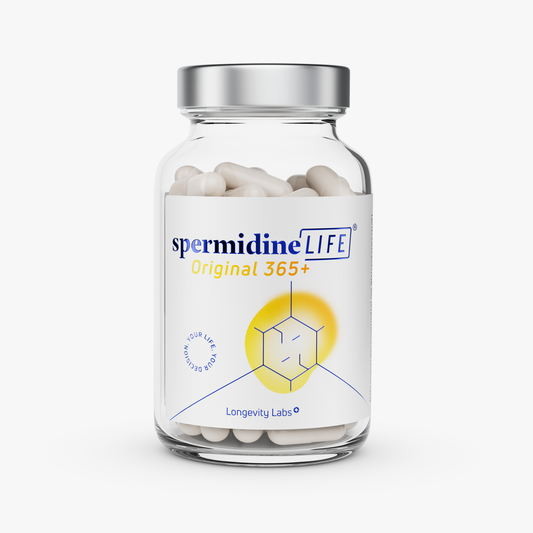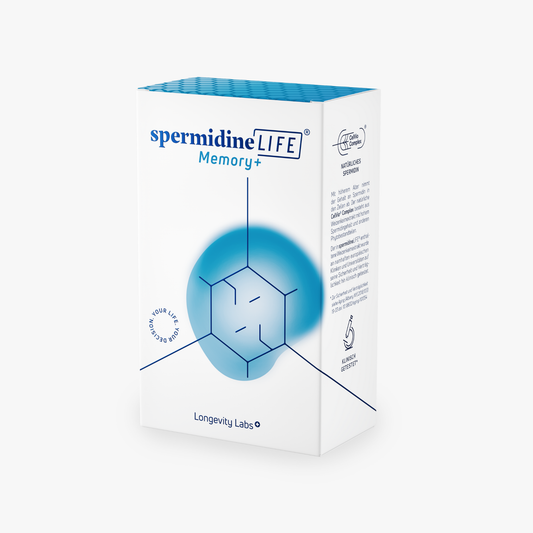
The unity of body and mind
Memory,Science, TLL LongevityLabsWe have long attributed a certain mutual influence to body and mind. But new studies now show that these psychosomatic connections go much deeper: Not only is mental suffering detrimental to health, but the body conversely controls our emotions.
We believe we know that our body and our mind form a unit. It is no coincidence that there are various sayings such as "one heart and one soul," "a problem is in your stomach," or "heartbreak is in your heart. However, many scientists around the globe are currently researching how strong this interaction really is.
Whether it's a heart attack, back pain or a viral infection - the psyche has an immense influence on our state of health. This fact is the focus of what is known as Psychosomatics. It examines the significance of psychological processes for the development and progression of diseases. Already Sigmund Freud assumed that psychological conflicts transform into physical complaints and his theories find more and more proof.
Today we know that already in the womb the mental well-being of the pregnant woman influences the immune system of her child. In stressful situations or emotional strain, her body releases cortisol, which also enters the fetus' body via the placenta and alters the immune system there. But even in adulthood, a stressful workday weakens our immune system and makes the body more susceptible to viruses and bacteria.
In extreme cases, the influence of the psyche can threaten our lives. According to experts, it is a decisive factor in four out of five heart attack patients. The risk increases with heavy stress. Often the heart But often the heart only blocks when conflicts, stress factors or strokes of fate accumulate.
Under stress, our body releases the hormones cortisol and adrenaline. Our heart beats faster and with more pressure. In itself, this is a clever move by nature to make escape reactions effective. However, if this condition persists, it becomes a permanent stress, which can lead to chronic high blood pressure, hardening of the arteries and thus to heart attacks.
Researchers now believe certain personality types that favor coronary heart disease. People with a "Type D" personality (D for distressed) are particularly at risk. They are often bad-tempered, anxious and depressed. Also under suspicion: "Type A" individuals. They are overly ambitious, dogged and, by extension, not infrequently hostile. According to Jochen Jordan, head of the Department of Psychocardiology at the Kerckhoff Clinic in Bad Nauheim, perfectionism is the most important risk factor.
Even more dangerous than stress or certain personality types are mental illnesses for physical health. Accordingly, depression can put a similar strain on our heart as smoking - has the Center for Psychosocial Medicine of the University of Göttingen has found out. Even a subliminal depression shows damage comparable to passive smoking. Mental illnesses alone cannot lead to a heart attack, but they clearly promote it.
Conversely, the unity of body and mind can also be demonstrated in psychosomatics. Our body is now the focus of research because it is said to cause mental illness. An example of this is Diabetes. Scientists are currently researching the extent to which diabetes promotes depression. And not without reason: diabetes patients have twice the risk of becoming depressed! The researchers suspect that the disease involves processes that are responsible for depression more susceptible to depression. On the one hand, this includes poor blood sugar control, which is known to lead to exhaustion and listlessness; on the other hand, the disease is also thought to possibly lead to changes in the brain.
And there is sufficient evidence for this! For example, some diabetics have a reduced concentration of the growth factor BDNF (brain-derived neutrophic factor). This protein plays an important role in the growth of nerve cells. Imaging studies indicate a reduced brain volume in some diabetics in certain brain areas such as the amygdala and the hippocampus. One possible consequence: the ability to learn is impaired. The individuals do not learn to cope with difficult situations and are thus more prone to depression.
Erich Kasten, psychology professor at the University of Göttingen, also researches the influences of our body on our mind. He has supervised many cases in which supposed psychological problems were triggered by physical symptoms. For example, an underactive thyroid gland can trigger symptoms similar to depression, while hyperthyroidism can sometimes cause mood swings.
Also Inflammation can also have a negative impact on the psyche. In this case, messenger substances of the immune system trigger the typical feeling of illness in the brain - we want to be alone and withdraw. Again, a useful trick of nature: if you're sick, you should withdraw so as not to infect anyone else. But in the long run, this feeling can endanger people's mental balance. The psychologist explains that ultimately all mental processes are based on a physical basis, and it is therefore not surprising that many organic disorders also make themselves felt mentally.
For some years now, scientists have also been investigating evidence suggesting that the intestine could be another source of mental disorders. This is also the case of the Department of Experimental Neurogastroenterology at the Medical University of Graz whose representatives are looking at the intestine for its millions of nerve cells. It not only receives signals from the brain, but also sends information there. This means that in addition to the nerve cells, immune messengers, intestinal hormones and bacteria also have an influence on the brain - and thus possibly control emotions.
Along with the intestine, our Nutrition automatically becomes the focus of scientific research into the factors that influence our psyche. A study of around 3,000 young people in Australia, for example, showed that a switch to a healthy food improved the psychological well-being of the test subjects over the years. In contrast, those who ate a poorer diet saw their psychological well-being decline. The farmer's wisdom "You are what you eat." is therefore more valid than ever.
In addition to diet, exercise also plays a Exercise also occupies a key position in mental health. While we have long known that physical exercise is good for the psyche, scientists have now also discovered that we can influence our psyche with exercise. And not just because exercise increases the release of the happiness hormones endorphins.
Psychologist Sabine Koch from the University of Heidelberg has shown that targeted movements can briefly lift the mood of people with depression. In this specific case, the pronounced bouncing movements of an Israeli circle dance temporarily alleviated depressive symptoms. The up-and-down movement specifically counteracts depressive attitudes and thus provides psychological relief. Whether this effect can be achieved in the long term remains to be seen.
Another exciting theory deals with our Mimic. It has now been proven that people with a forehead wrinkle paralyzed by Botox process negative emotional messages more slowly or more weakly. Psychiatrists from Hanover and Basel then conducted a study to get to the bottom of this further. They checked whether we are less susceptible to negativity when our facial expressions are incapable of angry or sad expressions. And indeed, depressive symptoms decreased by about 50% over the following months as a result of Botox treatment.
All these findings about the close relationship between body and psyche show us again that the assumptions of René Descartes-he advocated the separation of body and mind in the 17th century-was an aberration and that doctors and scientists must no longer regard these two as separate spheres. We are curious to see where all these branches of research will lead us and what our understanding of the unity of body and mind will look like in a few years and decades.






